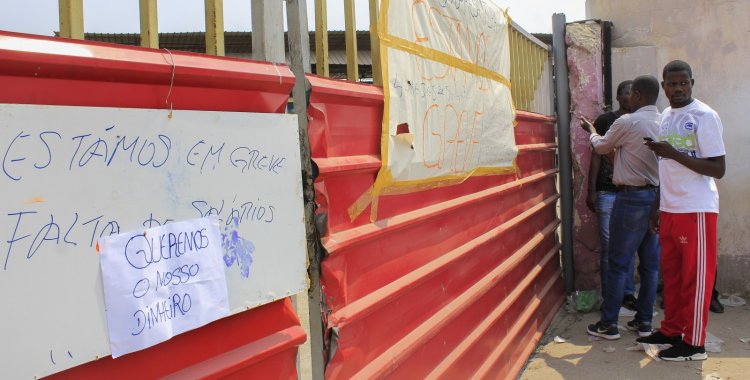The OAA created teams to monitor the exercise of this right in the country's 18 provinces, during the second phase of the general workers' strike, which took place between the 22nd and 30th of April.
In a report to which Lusa had access, prepared by the OAA Human Rights Commission, it states that, contrary to the first phase, this time there were no cases of physical aggression and/or arrests of strikers and trade unionists.
However, during the strike, there were cases of coercion and threats, according to the document.
The Ministry of Justice and Human Rights deprived the strikers of the benefit regarding the sharing of emoluments, in Benguela the local government determined salary discounts for the strikers, the Ministry of Health replaced striking workers with expatriate doctors and in the province of Cabinda strikers were threatened by the Services of State Security.
The board of directors of the National Electricity Company applied discounts to the strikers' salaries and this same public company reportedly instructed the police to disperse striking workers in the provinces of Benguela and Namibe, with the provinces of Uíge and Cuando Cubango also recording acts that constitute "coercion to not join the strike".
According to the OAA, which also followed the first phase of the strike, trade union freedom was curtailed by the aforementioned public institutions, in the second phase of the workers' strike, stating that the right to strike is linked to fundamental rights and this should not be restricted in an arbitrary manner.
The commission therefore recommended that government, political, police and other state institutions provide a corrective interpretation of the Strike Law and the review of this diploma, in force since 1991, as it "does not comply" with the Angolan Constitution approved in 2010.
This body even urged the National Assembly, the President, the trade unions, workers and civil society to unite in the drafting of a new Strike Law that is "fairer" and that respects the structuring principles of the democratic State and the rule of law.
It also argues that the President, João Lourenço, should promote negotiations with the trade unions, in order to resolve the concerns expressed in the list of demands, as well as the OAA to request successive abstract supervision of the rules of the Strike Law before the Constitutional Court.
The general strike, whose first phase took place from the 20th to the 22nd of March last, with the third scheduled for next June, is coordinated by three union centrals, namely the Central Geral de Sindicatos Independentes e Livres de Angola (CGSILA), União Nacional dos Trabalhadores Angolanos - Confederação Sindical (UNTA-CS) and Força Sindical - Central Sindical (FS-CS).
At stake are increases in the national minimum wage, adjustments to civil service salaries and a 10 percent reduction in Labor Income Tax (IRT).







